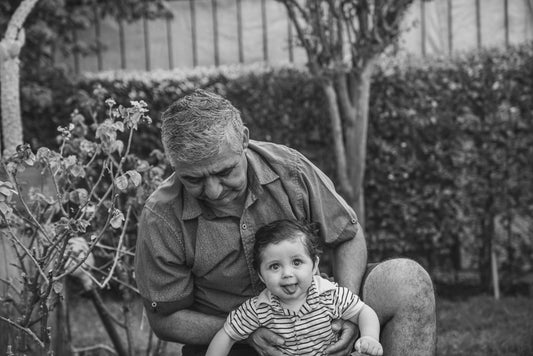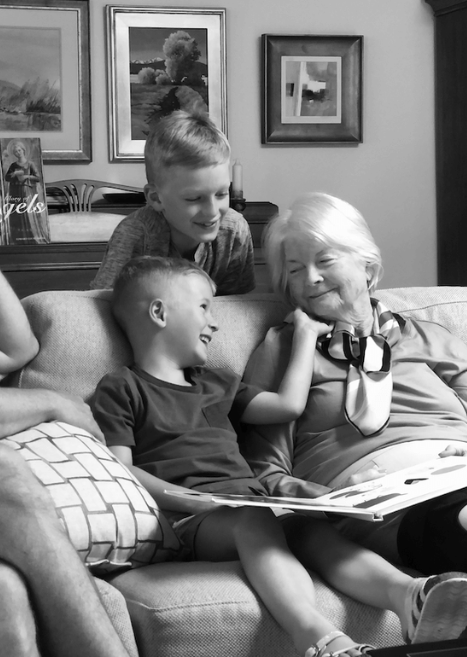In times of crisis, whether that’s a death of a loved one or recent cancer diagnosis - navigating the delicate balance between offering support and respecting boundaries is crucial. In Episode 1 of the Spry podcast we talked about our friends, whose daughter was recently diagnosed with leukemia, and the impressive way that their close friends and family surrounded them, orchestrated communications, and organized practical ways that we could all help.. We wanted to share these ideas, and the love, with all of you!
Here's a guide on how to effectively face these challenges, based on real experiences and thoughtful strategies.
PATIENT & PRIMARY CAREGIVER
Structure Support for Easy Assistance
Wait until all support structures are in place before making announcements. This ensures that friends who want to help can do so easily. Establishing dedicated channels, like an Instagram account, can streamline daily updates. This not only keeps everyone informed but also alleviates the emotional burden of repeatedly sharing the same information.
It is also helpful to ask a friend or family member to take charge and orchestrate communication on their behalf and organize help so they can be fully present to what is happening in their life.
Questions to Consider:
- How can you help reduce the burden of communication?
- How can you provide ways for people to help?
- How can you reduce friction between the people who want to help and those who need it?
Tip: Have a single place where people can find information.
- Set up a separate social media account where people can follow along if they want more information and updates specific to this situation.
Communicate Openly and Directly
Good friends often step in to communicate on behalf of those in crisis, easing the burden on the individuals. Open and direct communication about needs and preferences helps in managing expectations and ensuring that assistance aligns with actual requirements.
Tip: Let someone else keep your community updated.
- Find a trusted person or group of people to communicate on your behalf. The burden of summarizing what is happening and keeping everyone up to date can be exhausting. Tell one person or one group and let your core team keep everyone else in the know.
Share Thoughtfully and Avoid "Vaguebooking"
One of the first lessons learned is the importance of sharing information thoughtfully. It's okay not to share everything immediately. Wait until you have enough details to provide a clear picture. Avoid "Vaguebooking" – sharing cryptic messages that leave friends guessing. Open, honest communication helps everyone understand the situation without unnecessary speculation.
Tip: Share broadly when you’re ready.
- Share with close friends and family first, privately.
- When you’re ready (and only if you want to, of course), share information more publicly on your social media channels.
- Don’t be vague — explain what is happening, what you need, and how people can help (because they will want to help!).
Simplify Donations Through Aligned Platforms
A lot of people will want to help by sending money. To make financial contributions easy, consider transitioning platforms like Venmo to align with the cause. Venmo makes it easy for your community to immediately respond and contribute amounts large or small, and you avoid some of the fees that other platforms charge. This reduces friction, allowing for smaller, more frequent donations. Additionally, setting up a project on GiveInKind.com provides a centralized platform for assistance, making it easier for friends to contribute in meaningful ways.
Coordinate Meals and Essentials
Meal coordination is a practical way to support friends. Whether it's a home-cooked meal, a restaurant delivery, or a grocery gift card, sign up sheets can help organize contributions. This ensures variety and prevents overwhelming the recipients with the same items.
Tip: Set up a care calendar at GiveInKind.com
- Give In Kind (or a similar platform) allows you to schedule meals, rides, grocery shopping, housekeeping, pet care, and more. For free.
Delegate Tasks and Responsibilities
People want to help! When someone offers, never feel bad about assigning tasks like grocery shopping, housekeeping, and more to alleviate the day-to-day burdens. Having a structured plan allows friends to contribute in specific ways, ensuring a balance of support without duplication.
Tip: Be clear about what you need.
It’s OK to be direct about what you do and don’t need. This could range from having too much pizza to appropriate times to visit (or whether you’re accepting visitors at all).
Avoid Generic Offers; Be Specific in Assistance
Never ask “How can I help?”' Instead, be specific about what you can offer! Whether it's childcare, transportation, or a listening ear, pinpointing your assistance reduces the burden on the individual and helps meet their actual needs. While a generic offer is usually well intentioned, it puts the burden on someone who is already going through a lot. Instead, just send money, deliver a meal, take the garbage cans to the curb, clean a toilet, or offer a ride.
Tip: Even just a simple supportive text with a "Thinking of you, no need to respond" is great.
Be Mindful of Requests and Boundaries
Respect the specific requests and boundaries set by the person in crisis. Too many toys, unannounced visits, or attending when sick can be overwhelming. Before offering help, consider their preferences and ask if they have specific needs.
Supporting friends in crisis requires a thoughtful and coordinated effort. By respecting boundaries, utilizing effective communication channels, and offering specific assistance, friends can truly make a meaningful impact during challenging times.




